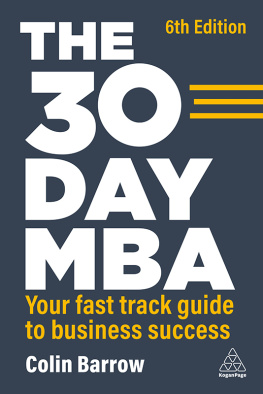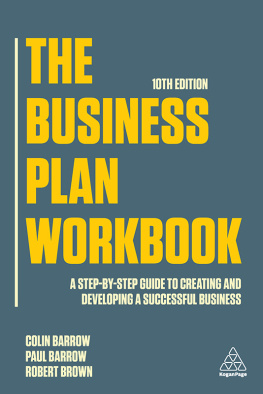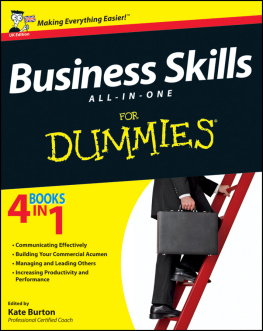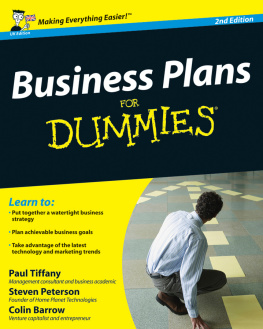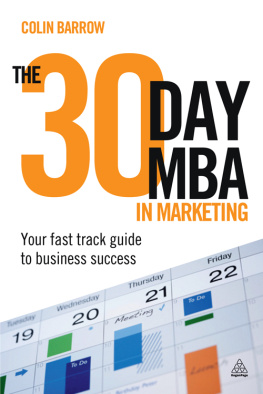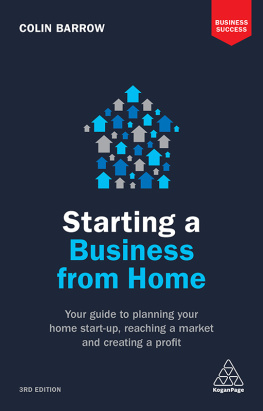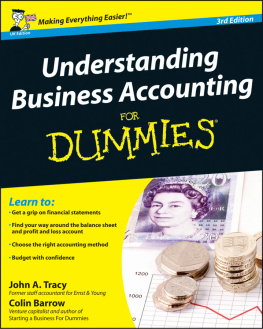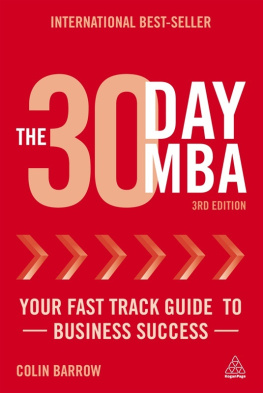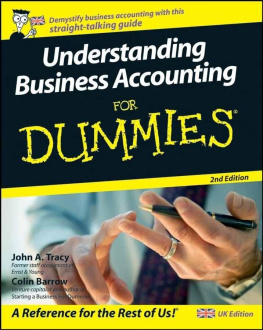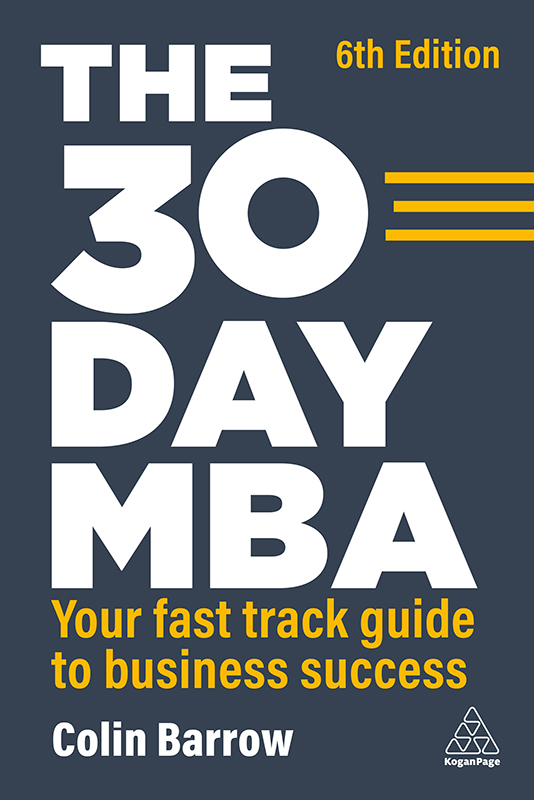
Contents
Landmarks
List of figures
List of tables
Page List
THE 30 DAY MBA
Resources
For many of the topics in the book there are direct links to the free teaching resources of the worlds best business schools.
There are also links to hundreds of hours of free video lectures given by other distinguished Business School professors, from top schools including Cranfield, Wharton, Chicago, Harvard and CEIBS (China Europe International Business School).
You can download Duke Universitys top ranking Fuqua School of Businesss lecture material on forecasting; a vital aid to anyone preparing sales projections.
Link into Cranfields School of Managements Research Paper Series and see the latest insights in global supply chain logistics, or watch Harvards Professor Michael Porter a leading world proponent of international business strategy methodology outline his ideas.
You can find a list of all these online resources and more at www.koganpage.com/30MBA and interspersed within the chapters.
Contents
The real value of an MBA
What an MBA graduate knows and why YOU need that knowledge too
Where to get MBA knowledge from 22 of the worlds best business schools (not just from one)
Tap into the experiences of over 60 business and learn how they dealt with the challenges facing business today
Discover how to use this book and how to access complementary world-class teaching material and resources
The claim to being the worlds first business school is, like everything else in business, hotly disputed. The honour is usually said to rest with Ecole Spciale de Commerce et dIndustrie (now ESCP Europe), established in Paris in December 1819, with Jean-Baptiste Say, who coined the word entrepreneur, as its first professor of economics. Wharton led the field in the US, founded in 1881 by Joseph Wharton, a self-taught businessman. A miner, he made his fortune through the American Nickel Company and the Bethlehem Steel Corporation, later to become the subject of the earliest business case studies. The school is based in an urban campus at Philadelphias University of Pennsylvania.
It wasnt until 1900 that Tuck School of Business, part of Dartmouth College, began conferring advanced degrees in management sciences. In 1908 Harvard Business School opened, with a faculty of 15 and some 80 students, and two years later it was offering a Management Masters programme. By 1922 Harvard was running a doctoral programme pioneering research into business methods.
The UK was late into the business school game. The Administrative Staff College at Henley (now Henley Business School), established in 1945 as the civilian equivalent of the Military Staff Colleges, was a business school in all but name. It took a further decade or so before the long-held belief of politicians and business leaders that management was an inherited ability, a view reinforced by the heavy concentration of family-run businesses, diminished. Business schools at Manchester (1965), London (1966) and Cranfield (1968) led the field, now swollen substantially.
Business school education today
There are now over 10,000 universities worldwide offering MBA programmes. Between them they attract over half a million applicants. The Graduate Management Admissions Council (GMAC), in their latest survey published in November 2021 covering some 650 of these providers, showed that after a slight dip in 2019 applications are on the rise. Their study of 6,594 prospective candidates showed that 82 per cent believed having the knowledge gained in a Masters programme would help them stand out at work. The GMAC study found, however, that cost continues to weigh heavily on the minds of candidates, as 42 per cent agree that the cost of a graduate business education is too much for the value.
Prospective MBA students are probably wise to be cautious. It seems unlikely that the quality of education delivered at many business schools has kept pace with the rise in quantity. The Business Graduates Association in 2020 conducted its largest ever online survey of its 49,000 MBA student and graduate members, based in more than 150 countries. They found that just 25 per cent rated the teaching on their MBA programme as excellent. Barely 32 per cent said their MBA programme represented very good value for money. Similar proportions found the teaching and programme value to only be fairly good. The best business schools are very good, but in truth thats only a description that applies to a hundred or so schools around the globe.
The point at issue is not whether the knowledge to be gained from taking an MBA is worth having, rather its whether getting it from a programme taught face-to-face in a business school represents value for your money. Just under half of those considering an MBA in 2019 had an online programme in mind. That shot up to over 80 per cent in 2020, with students aiming to halve their costs with the added bonus of being able to stay at work and keep their salary. Although many online programmes are very flexible, some are not. Schools charging the most usually have synchronous courses using video conferencing. With these, students can interact live with their professor and other students in an online classes: the downside is that they must stick to scheduled dates and times, which may not fit with work commitments.
So should you go to business school?
Whether you should pay or forgo salary to a total sum north of 100,000, for a programme that is 75 per cent certain not to be excellent, seems like an easy question to answer. Youve already more or less answered it by reaching page 2 of this book!
One GMAC study listed the top three prospective MBA students personal and career goals as typically to:
remain marketable (competitive);
develop management knowledge and technical skills;
improve long-term income and financial stability.
You certainly dont need to spend a fortune in time or money to achieve these goals, a fact tacitly recognized by the London School of Economics and Political Science, a prestigious establishment if ever there was one. Their MBA Essentials Online Certificate Course aims to help you build a toolkit of key strategic, managerial, and leadership skills. It is a ten-week, ten-module online course that when completed leads to a certificate. It looks to be a valuable programme, but it cost 3,250 in 2022 ( www.getsmarter.com/products/usb-ed-mba-essentials-online-short-course ).
There is no aspect of business school teaching and virtually no world-class professor that you cant listen to for free to complement the content of this book. But you do need willpower! If and when you decide that business school is right for you, this book will be a sound preparation for the programme and help you choose the right school. It will also be a worthwhile resource when you start revising for exams.
Using this book
If you decide, as do most students of business, that attending a business school is not the best way for you to acquire an MBA skill set, or perhaps it is not right for you now for reasons of cost, time or convenience, then you can fall back on your own resources. Remember that for every manager or executive with an MBA there are over 200 with no formal business qualification and often with absolutely no knowledge save that acquired in their single personal discipline.
Next page
